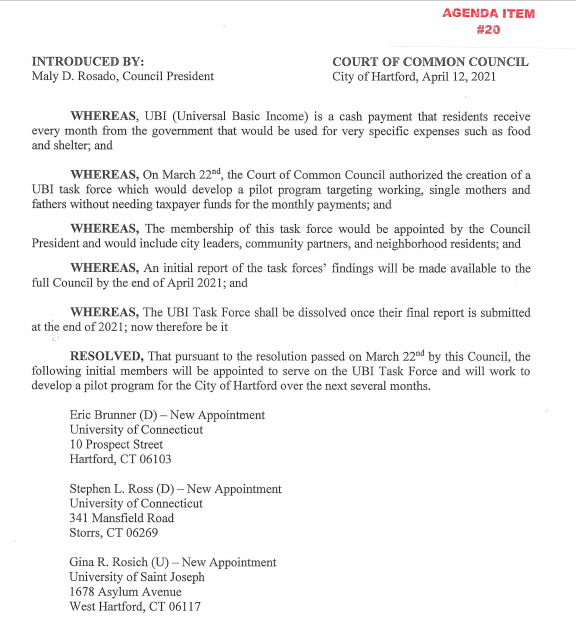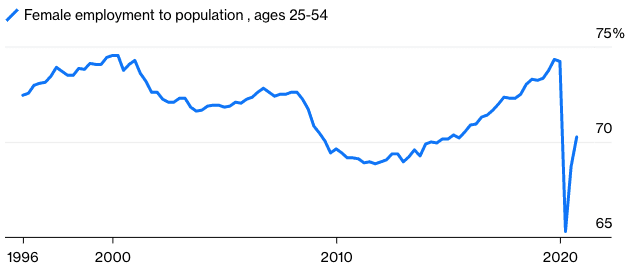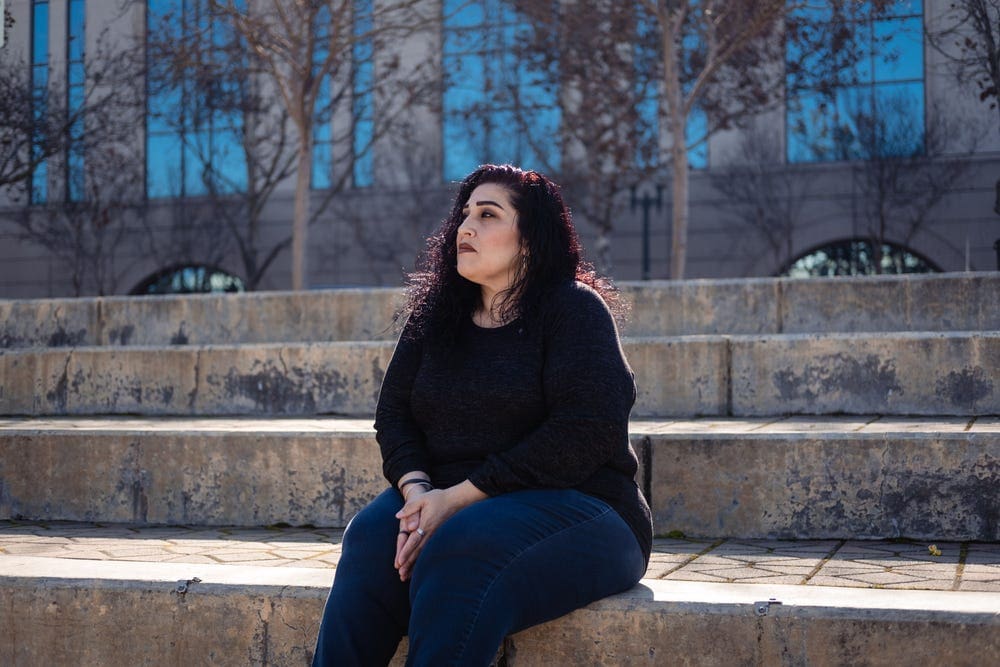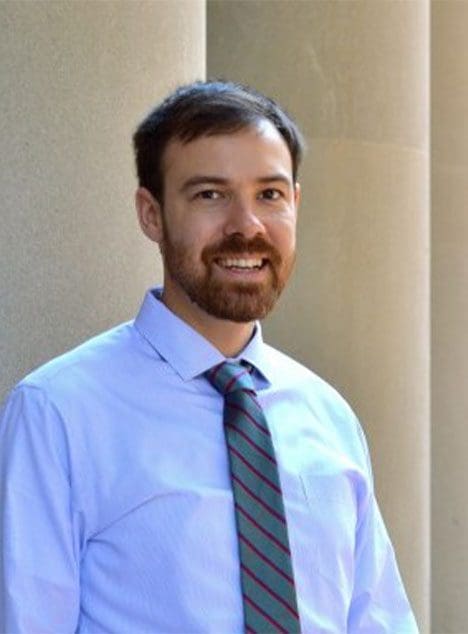The Bay Area is ground zero for UBI. More than anything, these pilots could help normalize the concept of guaranteed income, for the public and national political leaders.
by Benjamin Schneider
“I’m hella proud of Oakland today,” Michael Tubbs said during a recent press event announcing one of the nation’s largest ever guaranteed income programs. Tubbs, the former mayor of Stockton who has become a national champion of guaranteed income, is starting to see his advocacy bear fruit downriver. Oakland is just one of several Bay Area cities or counties to announce a guaranteed income program in recent weeks, joining Marin, Santa Clara, and San Francisco.
For years, the Bay Area has served as the intellectual and financial epicenter of the movement for a universal basic income (UBI), which seeks to provide everyone, or almost everyone, with an unconditional payment every month — like a stimulus check that keeps on coming.
Now, the Bay Area is rapidly becoming a hotspot for more targeted guaranteed income experiments. These programs provide a no-strings-attached monthly income to specific vulnerable populations, including pregnant women, artists and youth aging out of the foster care system.
But the boosters of these guaranteed income pilots are explicit in their desire to see them scale into something closer to UBI in the hopes that, someday, such policies could eliminate poverty altogether. These efforts could also intersect with other progressive policy goals, like reparations for Black people. A lot of work — and debate — remains before these revolutionary aspirations become a reality. But advocates in the Bay Area are planting the seeds.
“Our vision is an Oakland that has closed the racial wealth gap, and where all families thrive,” Oakland Mayor Libby Schaaf said when announcing the city’s guaranteed income program, which she views as a test case in a growing national movement.
“Oakland joins with cities across this great nation to create a body of evidence that says guaranteed income is a policy that must be adopted at the federal level.”
From Artists to Foster Kids
If you take a look at the Stanford Basic Income Lab’s map of guaranteed income programs around the world, the Bay Area stands out as a crowd of colorful dots, each one representing a different experiment.
Oakland’s pilot is the largest in the region, providing $500 per month to 600 low-income families for at least 18 months. All applicants must make no more than 50 percent of Oakland’s median income, or about $59,000 for a family of three, although half of the spots will be reserved for people making a lot less — about $30,000 for a family of three. Applications will be released starting this spring for residents of a specific corner of East Oakland, and for residents citywide in the late summer. Eligible recipients will be selected at random.
Marin County’s program will function similarly, giving 125 low-income women of color with children $1,000 per month for two years. Applications will be released sometime this year.
Meanwhile, down in Santa Clara County, a guaranteed income program that began in September 2020 has been providing 72 youth who have aged out of the foster care system $1,000 per month. State Senator Dave Cortese, who spearheaded Santa Clara’s guaranteed income pilot as a County Supervisor, has introduced legislation, SB 739, that would provide a guaranteed income to the approximately 3,000 youth who age out of the foster care system for three years.
San Francisco is developing a smorgasbord of guaranteed income programs for different groups of people. Yerba Buena Center for the Arts (YBCA) will give $1,000 a month to 130 artists living in San Francisco for six months. Applicants must live in one of about a dozen zip codes that have been particularly hard-hit by the pandemic, and be considered “very low income,” which in San Francisco means earning less than $60,900 for a single person and under $87,000 for a family of four.
The program encourages applicants whose artistic practice “is rooted in a marginalized community,” and welcomes teachers and craftspeople as well as fine arts professionals. Applications are out now on the YBCA website, and are due by April 15.
San Francisco’s Department of Public Health is currently working on a guaranteed income pilot called the Abundant Birth Project, specifically for pregnant Black and Pacific Islander women. The mothers will receive $1,000 per month while they are pregnant, and for another six months after their child is born. Yet another guaranteed income program is being planned as part of the Dream Keeper Initiative, programs designed to help the Black community with funds redirected from law enforcement.
Why Now?
Guaranteed income is hardly a new idea. It was championed by Martin Luther King, Jr. at the end of his life, when he began to offer a more radical critique of capitalism. “The solution to poverty is to abolish it directly by a now widely discussed measure: the guaranteed income,” King wrote in his 1967 book Where Do We Go From Here: Chaos or Community? In the late ’60s and ’70s, the concept actually had bipartisan appeal. Before becoming architects of the Bush war machine, Nixon Administration officials Donald Rumsfeld and Dick Cheney supported guaranteed income-esque programs, but were unable to get more far-reaching policies through Congress.
Fast forward to the 21st Century, and two people stand out for reviving this idea.
The first is Michael Tubbs, who, soon after being elected mayor of Stockton at the ripe age of 26, began developing a guaranteed income pilot for his hometown. In March, researchers released data on the first year of the two-year program. The results?
Employment among the recipients increased by 12 percent, anxiety and fatigue decreased, and recipients spent most of their additional income on essentials.
The 25-page analysis by social scientists from the University of Pennsylvania and the University of Tennessee found the program to be largely a success.
The second high-profile guaranteed income champion is the tech entrepreneur Andrew Yang, whose 2020 presidential campaign hinged upon his proposed “Freedom Dividend” — a monthly $1,000 stipend for every American adult. After gaining a cult following during his presidential bid, Yang is now the frontrunner in the race for mayor of New York City, with guaranteed income serving as a major plank of his platform. (Tubbs had no such luck: His success in drawing national media attention to UBI appears to have harmed him in his 2020 mayoral reelection campaign, which he lost to a Republican.)
But for all of their agitation, Yang and Tubbs’ impact on people’s perception of guaranteed income might pale in comparison to recent actions by the federal government. Over the past year, the stimulus payments most Americans received likely did more to normalize guaranteed income than any prior advocate or program.
“Once you give them that experience of what a guaranteed income or other kinds of cash assistance could look like, people start to be more open to it,” says Max Ghenis, CEO of the UBI Center.
There used to be a lot of false stereotypes that poor people would misuse direct cash assistance, but when “COVID-19 hit that really went away for the most part,” says Grace Peter, director of national partnerships at Family Independence Initiative, one of the groups leading Oakland and Marin’s guaranteed income pilots. Government stimulus and other forms of mutual aid — like people contributing to GoFundMe drives for strangers — helped normalize “the belief that people are going to do the right thing” with their money.
The pandemic and the racial justice protests this year also highlighted just how extreme inequality has become in America, and in the Bay Area in particular. “There’s a correlation between low income and communities of color and COVID impact,” says Deborah Cullinan, president of YBCA. The pandemic created a sense of urgency to explore new financial models that “reach the people that have been hardest hit and have not necessarily been funded in the past.” Clearly, there is a strong demand for this kind of assistance: Cullinan says YBCA’s guaranteed income program for artists has already received 1,600 applications for just 130 spots.
Why Here?
While guaranteed income is gaining steam among local elected officials all over the Bay Area, the concept has long held sway in Silicon Valley. The animating concern of Andrew Yang’s UBI push was the threat automation and AI presented to the likes of store clerks, factory workers, and long-haul truckers. This continues to be a major fear in Silicon Valley, serving as an inspiration for Y Combinator’s 2016 UBI pilot in Oakland.
Guaranteed income easily fits with an “engineering mindset that emphasizes simplicity when you’re trying to solve a problem,” Ghenis says.
“We have this problem of poverty, so the simplest thing that you can do to reduce that is give people money so that they’re not in poverty.” It’s also an innovative social policy — something that tech people, and Bay Area politicians, are attracted to. Hence the local pools of money that are available to fund these programs.
The Economic Security Project, which funded the Stockton pilot, was co-founded by Facebook co-founder Chris Hughes. San Francisco’s Abundant Birth Project is being funded in part by a $1.1 million gift from Twitter CEO Jack Dorsey. The Marin Foundation is funding the majority of Marin County’s guaranteed income program, while Oakland’s program will be fully funded by a philanthropy called Blue Meridian Partners. It’s a similar story to that of California’s recent cash assistance programs for undocumented people, which were funded by big philanthropies and tax windfalls from the IPO boom.
Perhaps the region’s extreme — and extremely visible — inequality is also pushing leaders to act.
“The Bay Area and San Francisco have struggled with economic disparity in a major public and glaring way, with housing insecurity and affordability issues,” Cullinan says.
“The pandemic brought that into such stark relief and I think that also has catalyzed the fact we had to solve this problem.”
Piloting Reparations
With their explicit focus on racial justice, several of the Bay Area’s guaranteed income programs point the way toward another policy idea that was once thought radical and now appears to be gaining traction. In an article about Oakland’s pilot, Los Angeles Times columnist Erika D. Smith wrote that its focus on people of color is “not that far off from providing Black Americans with financial reparations for slavery — an idea that, until fairly recently, had gone absolutely nowhere politically.”
This has already emerged as a complicating factor in the planning and promotion of the Bay Area’s guaranteed income pilots. During the initial announcement of Oakland’s program, Mayor Schaaf said it would only be open to people of color. The program has since changed its criteria, editing the language on its website to remove references to race in the eligibility requirements. Explicitly race-based criteria could pose legal challenges to government-supported guaranteed income programs in California, where affirmative action remains illegal. However, those laws wouldn’t affect Oakland’s pilot, which is being fully funded by non-profits.
“This pilot is targeting families with the greatest disparities, and a lot of those are based on our systems, which are rooted in structures that hold Black and brown families back,” Peter says.
While racial justice is the guiding principle of Oakland’s guaranteed income pilot, Peter emphasizes that anyone who fits the income and geographic criteria can still apply. That’s also true for San Francisco’s guaranteed income pilot for artists.
In all likelihood, beneficiaries of these programs will be people of color. The median income for white households in Oakland is three times that of Black households. Across the country, Black and Latino people have about one-tenth the wealth of white people. These economic disparities, combined with continued racial discrimination, contribute to disparities in areas like health, education, housing, and the workforce. The Bay Area’s guaranteed income pilots come as California begins to assemble a task force to study reparations for Black people.
While Ghenis sees the value of explicitly targeting racial groups for guaranteed income, he’s concerned about how that could affect the momentum for UBI at the federal level.
“The polling for something like reparations, which is really what this gets at, is a lot less favorable than it is for more universal or at least race-neutral policies like cash assistance as part of the American Rescue Plan.”
Another variable for these programs is the way they interact with government benefits. Guaranteed income can usually be classified as a gift, and therefore not be taxed. However, these payments may affect participants’ ability to access other benefits. Oakland and San Francisco’s programs will have benefits counselors who will help participants navigate these issues.
Community Benefits
But getting through these logistical headaches will be well worth it, researchers believe. Ghenis is particularly excited that many of the Bay Area’s guaranteed income programs are focused on families with children. “There’s a ton of evidence that reducing poverty has really important effects for child development,” he says. “As they grow older, they have higher earnings, they have better health and better mental health, they have even longer life expectancy.”
Researchers are also considering how these programs affect the communities that guaranteed income recipients are a part of.
“What happens when you shift from a destabilized community to an economically more stable community?” Cullinan asks.
“We’re trying to understand not only what are the impacts in the artist’s life, but also what’s the increase in creative output, what’s the positive impact in the community?”
The Oakland pilot is designed to specifically measure neighborhood-level effects. With one half of participants concentrated in East Oakland, and the rest scattered throughout the city, researchers will be looking to see if there’s a noticeable difference in the economic, public safety, educational, and health outcomes in the community where many people are receiving guaranteed income.
San Francisco District Attorney Chesa Boudin has voiced his support SB 739, the state law that would extend Santa Clara’s guaranteed income for foster youth across the state, highlighting its impact on criminal justice.
“Transitional age youth without familial support far too often end up victimized or arrested and incarcerated for committing crimes to support themselves,” he said in a statement.
“Providing all people — especially our most vulnerable — with economic stability promotes public safety.”
While researchers are eager to see the results of these experiments, the fact is there’s already been a lot of research on cash assistance and guaranteed income programs. It turns out that when you give poor people money, their lives get a lot better. More than anything, these pilots could help normalize the concept of guaranteed income, for the public and national political leaders.
“Research is important and data helps us to learn, what works and what doesn’t work,” Peter says. “But it’s really narratives that are going to shift hearts and minds and ultimately policies.”
_____
To see original article please visit: https://www.sfweekly.com/news/the-bay-area-is-ground-zero-for-ubi/
The post From Stockton to Oakland, Santa Clara to San Francisco, basic income is gaining traction and proving effective appeared first on Basic Income Today.
This post was originally published on Basic Income Today.








